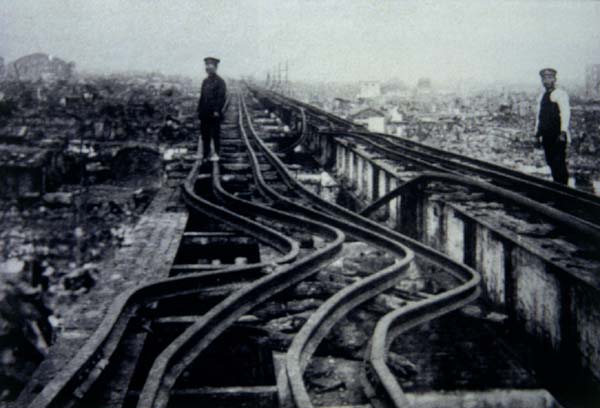1923, Yokohama
/
It takes little courage to lament in general the wickedness of the world and the triumph of brutality, and to threaten that the spirit will triumph in the one part of the world where this is still allowed. Many take this as their text and make their entrance as if cannons were trained on them, whereas in fact only opera glasses are trained on them. They yell their universal demands into a world of friends of the harmless. They demand universal justice, for which they have never lifted a finger, and the universal freedom to share in the loot which has long been shared with them anyway. They think only that which sounds beautiful can be true. If the truth is numerical, dry, factual, something which requires effort and study, then it is not truth for them, not something which can bewitch them. They only have the outward demeanour of those who tell the truth. The wretched thing with them is: they do not know the truth.
/
Those who are against Fascism without being against capitalism, who wail about the barbarism that comes from barbarism, are like people who want to eat their share of the calf without the calf being slaughtered. They want to eat veal, but they can't stand the sight of blood. They are satisfied if the butcher washes his hands before he brings out the meat. They are not against the conditions of ownership which produce barbarism, just against the barbarism. They raise their voices against barbarism, and they do so in countries in which the same conditions of ownership prevail, but where the butchers still wash their hands before they bring out the meat.
/
After a great earthquake which destroyed Yokohama, many American magazines published photographs depicting a field of rubble. Underneath was the caption 'steel stood', and indeed, anyone, who at first glance had only seen ruins, noticed - now that the caption had drawn attention to them - that several tall buildings had remained standing. Of all the possible depictions of an earthquake, the ones of unparalleled importance are those by the construction engineers, those which take note of the shifts in the ground, the strength of the tremors, the developing heat, etc., and which lead to constructions which withstand earthquakes. Anyone who wants to describe Fascism and war, the great disasters which are not natural disasters, must produce a practicable form of truth. They must show that these are catastrophes which are brought on the huge masses of working people, who lack their own means of production, by the owners of these means of production.
If one wants to write the truth about terrible conditions successfully, one has to write it in such a way that the avoidable causes of these conditions can be recognized. Once the avoidable causes are recognized, the terrible conditions can be resisted.
/
Bertolt Brecht, "Five Difficulties in Writing the Truth", 1935/now, still, entirely
